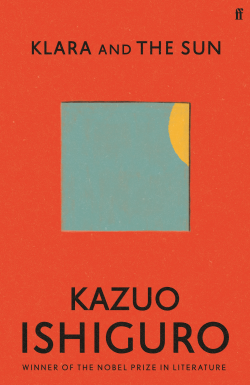Klara and the Sun - Kazuo Ishiguro

Warning
This is not a review. Only me rambling about this book. Only my personal thoughts and interpretation of it. It will probably be some spoilers. You are warned.
Klara and the Sun is the first book I've read from Kazuo Ishiguro. I found it while searching for books related to autism. I’ve been looking for characters who have some autistic traits to help me understand my autism.
The book is about Klara — an Artificial Friend, or AF. It’s amusing how she interacts with the world. When she is in the shop, she imagines all sorts of stories about people in the streets. However, when she communicates with other characters, sometimes they ignore her. It’s weirdly relatable in some scenarios.
When the story advances, we meet Josie, a lively but sick girl who wants to explore the world. She chooses Klara to be her AF. To be in charge of her, to take care of her and to provide comfort whenever she can. Sometimes they treat Klara like family, but others times they just ignore her in some high-intensity scenes.
The story revolves mainly around Josie’s health. As we explore Josie’s sickness, we start seeing a little more about the world. How some children are "lifted" — genetically improved to be more intelligent. In this world, there are no schools. They study from home, taking classes online. To fight the social isolation, the adults organize parties for children and teenagers to meet up and practice social skills. At one of these parties, we see the “ableism” present between “lifted"” and “non-lifted" children. The “lifted” children treat Rick— a “not-lifted” boy who is Josie’s best friend—like a puppy. With expressions like: “how cute, he is working on X!”. F*ck those children.
Maybe “ableism” is not the exact term for this kind of behavior. This scenario parallels how some people treat neurodivergent individuals in the real world. It’s a topic very present in the book. An illness or a disability—physical or mental—does not make you useless or inferior to others. It does not matter if you cannot be hyperproductive. Just because you exist, you deserve the right to live.
There’s also a pseudo-religion centered on the Sun. Klara — and other AF I suppose — think the Sun is a god because they are solar powered. In some scenes we see Klara trying to talk with the Sun and asking it to improve Josie’s health. I won’t mention how it ends, but the Sun “provides” Klara with a mission. Some people help her with this mission, which is not very logical. But when the life of your daughter is at risk, you will believe anything.
There’s more for this book. I’ve only talked briefly about the points that impacted me the most. The story and the relation between the characters is well-written. So, I any of these words made you curious, I advise you to read this wonderful book.
So… that's it. It's not a review. It's not even a summary of the story. These are just my thoughts of the book.
Bye!